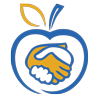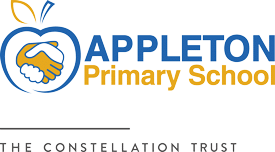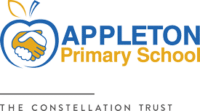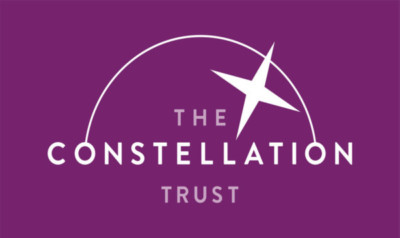History – curriculum overview
Intent
History at Appleton Primary is taught around a set of key concepts and second order concepts. A range of key concepts are explored through each historical unit and provide lenses through which to consider different aspects of history.
These concepts are revisited through different historical periods as children move through the school to deepen their understanding. Units are planned chronologically for that academic school year. (This is because of mixed year group classes in KS2) and include strong, rich historical links to our local area.
Second order concepts are taught and applied through each unit of history and build progressively as pupils move through the school. Pupils will also explore some of these second order concepts through other curriculum subjects.
The history curriculum makes full use of resources within the immediate and wider local area enabling children to develop a deep understanding of the rich history of their locality through a progressive curriculum.
By the end of EYFS, pupils will be able to:
- recognise and describe a special time or event.
- speculate why things happen and give explanations about simple cause and effect.
- identify and describe some similarities and differences and they can
- observe and describe how things have changed or stayed the same in their lives
- sequence a few events using language relating to time
By the end of Key Stage 1, pupils will be able to:
- develop an awareness of the past and know where the people and events they study fit within a chronological framework.
- make comparisons by identifying similarities and differences between life in different historical periods
- show an understanding of how we know about the past
- describe changes in living memory using historical vocabulary
- Recall some significant people from history and events beyond living memory
By the end of Key Stage 2, pupils will be able to:
- develop a chronologically secure knowledge and understanding of British, local and world history, noting connections, contrasts and trends over time
- use the appropriate historical vocabulary to describe change, cause, similarity and difference when discussing significant historical periods, events or people
- understand how our knowledge of the past is constructed from a range of sources
- construct informed responses that involve thoughtful selection and organisation of historical information
Implementation
History is taught progressively across the year groups, so that children achieve depth in their learning. Subject specific vocabulary is presented interactively in all classrooms allowing frequent repetition and practice throughout the year.
At Appleton, reading is at the core of the curriculum and enhances history further through high quality text. Therefore, cross curricular outcomes in history are specifically planned for, with strong links through a themed approach to enabling further contextual learning. Within our knowledge-rich approach, there is a strong emphasis on key local historical figures and the history of our local area. Extensive opportunities for learning outside the classroom are embedded in practice as teachers plan units of work in relation to an overarching theme for each term.
Consideration is given to how greater depth will be taught, learnt and demonstrated within each lesson, as well as how learners will be supported in line with the school’s commitment to inclusion. Outcomes of work are regularly monitored to ensure that they reflect a sound of understanding of the key identified knowledge through 3 Big questions. These allow for assessment opportunities and to identify children’s understanding and interpretation of their learning.
Impact
Outcomes in curriculum and English books, evidence a broad and balanced curriculum and demonstrate the children’s acquisition of identified key knowledge and vocabulary, which in turn reduces the word gap in disadvantages children. Emphasis is placed on analytical thinking and questioning which helps pupils gain a coherent knowledge and understanding of Britain’s past and that of the wider world and are curious to know more about the past.
Through this study, pupils learn to ask perceptive questions, think critically, weigh evidence, sift arguments, and develop perspective and judgement. Regular heritage projects provide further relevant and contextual learning, engaging members of the community in children’s learning and providing positive role models from the community for children to learn from.
Curriculum progression information:

“Big shout out to the teachers – doing a great job.”

“Resources have been really helpful and provided challenge.”

“You do an amazing job with our children.”

“Thank you from myself and my boys – we just wanted to show our appreciation.”

“Had a lovely morning visiting the school. It’s always a pleasure to meet with teachers who value the importance of the Arts in education.”

“It looks like the children are really enjoying themselves.”

“Very enthusiastic pupils with lots of energy and impeccable behaviour.”

“Fantastic school, students were brilliant. Thanks for having us.”

“Thank you to all teachers. Good teaching changes lives.”

“My son is sad to be leaving Appleton. He has loved his time at the school.”

“Thank you for your support at this time – it has really meant a lot.”

“Thank you for your efforts, it makes a huge difference to the kids!”

“Thanks as always for putting the school work onto the website for my children.”

“Thank you to everyone involved in producing that work as it is a perfect indicator of what levels and subjects to go with.”

“The children were an absolute delight, full of smiles and energy. Thank you for a lovely afternoon.”




